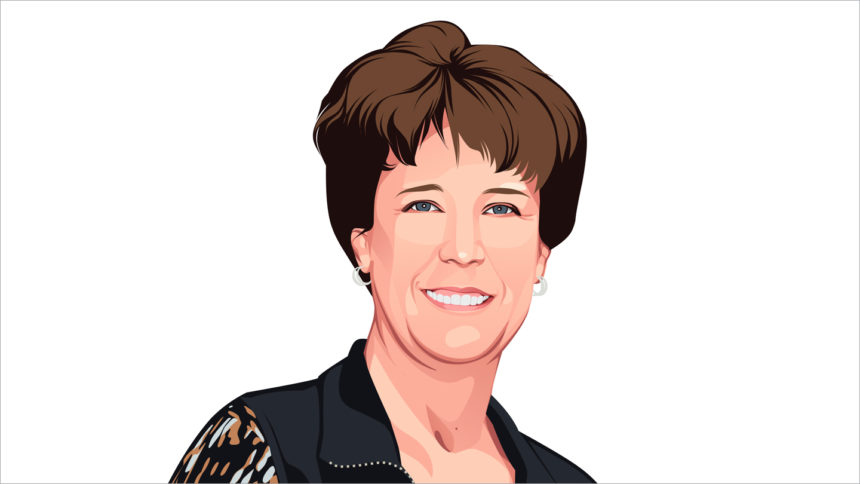
We chatted as we stood in line for the women’s bathroom. Comments such as, “There is always a line for us, isn’t there…” followed by up-and-down-the-line head nods.
Most in line were looking at their phones but took the time to affirm the wait. The elderly woman in front of me and I continued to small talk until openings became available. I met up with her again at the air dryer. I washed my hands, and as I held them under the high-powered dryer, the skin was forcefully blown away from my bones, and I saw my mother’s hands.
I was lost in memories when I heard a voice say, “You have such lovely hands, nothing like my old, shriveled hands.” I looked up and into the eyes of the lady I had been chatting with beforehand. I looked down at her hands, and thought of my mother’s and said, “I would give anything to hold the hand of the woman I hold in my heart that had hands like yours, hands that told the story of loving and living.”
I first was introduced to the blessing of hands as a young nurse working in a faith-based hospital. I was fresh out of college and eager to be a “real Nurse.”
I failed to appreciate or understand the significance of the ceremony. I failed to see that my hands would pump a heart back to life, that my hands would administer agents that would attack cancer cells, or even that they would comfort another as we sat together in silence. I saw them in a utilitarian mode. A means to an end to get the work done. It was later into my career, as a nurse leader, that their symbolism and their meaning had clarity.
It was a spontaneous moment, one of the spiritual support leaders approached us and said, “I would like to bless your hands as the burden that you carry as leaders is heavy.”
The blessing went something like this:
“When we reach our hand out to provide care, to do our work, as part of the care of others, we are saying to others, you are important to us, and you are cared for by the efforts of many who value you and your needs.
Holding your hands in front you observe their appearance and think of all that you do with your hands each day which contributes to the needs of our patients (residents) physically, spiritually and emotionally.
You have chosen to bless others with your hands in the work you do. Now we are going to bless your hands in recognition of the sacredness of what you do every day.
Blessings and appreciation for the healing touch these hands have brought to others.” — Sr. Mary Lou Palas, SC
After that moment, I was left with a desire to understand better the hands that served so many. I observed how others’ made such a difference every day. I started verbally speaking to my observations and my appreciation.
Take a moment to reflect on this statement: “When we reach our hand out to provide care, to do our work as part of the care of others, we are saying to others, ‘You are important to us.’”
I would add that we are truly saying you are important to me.
May 12 is Florence Nightingale’s birthday. Celebrations are usually scheduled around her birthday to honor caregivers. This year, pause for a moment and ponder upon the symbolism of hands that deliver care. It is only through the hands of many that care, and compassion is rendered.
Take the time to convey the message that those hands are important to you not only through your celebrations, but every day. That is what the blessing of the hands taught me: to be grateful for the hands of many and the work that they do.
Martie L. Moore, MAOM, RN, CPHQ, is the President/CEO of M2WL Consulting. She has been an executive healthcare leader for more than 20 years. She has served on advisory boards for the National Pressure Injury Advisory Panel and the American Nurses Association, and she currently serves on the Dean’s Advisory Board at the University of Central Florida College of Nursing and Sigma, International Honor Society for Nursing. She was honored by Saint Martin’s University with an honorary doctorate degree for her service and accomplishments in advancing healthcare.
The opinions expressed in McKnight’s Long-Term Care News guest submissions are the author’s and are not necessarily those of McKnight’s Long-Term Care News or its editors.





